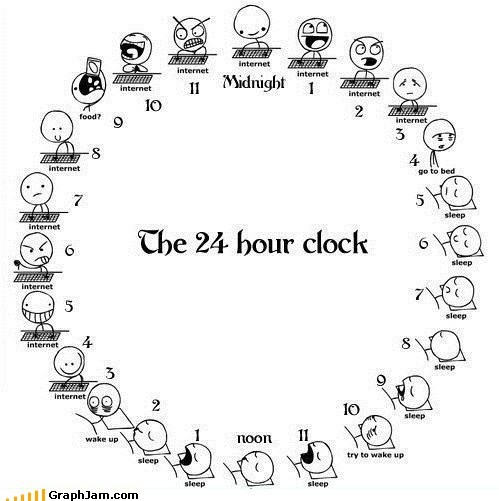 College or University can be an expensive prospect. In order to achieve their higher education goals, some students choose to enter the workforce concurrent to their education. While some students are able to harmonize their education and work, most tend to either forgo their education in favor of a burgeoning career or become so overloaded that they abandon both school and work. The following are some tips to assist in maintaining the delicate balance of school and work.
College or University can be an expensive prospect. In order to achieve their higher education goals, some students choose to enter the workforce concurrent to their education. While some students are able to harmonize their education and work, most tend to either forgo their education in favor of a burgeoning career or become so overloaded that they abandon both school and work. The following are some tips to assist in maintaining the delicate balance of school and work.
Prioritization
Though the idea of prioritization seems a given, it is commonplace for individuals to abandon priorities to seek more enjoyable pursuits. Once a student begins working the amount of free time available is significantly reduced and a high amount of discipline is required to complete tasks in an efficient manner. By prioritizing school and work over more social events and outings, an individual can minimize the risk of missing a deadline or falling behind in their studies.
Time management is vital for any individual, and even more so for a student juggling school and work. When creating a schedule it is important to identify those things that will prove inflexible, such as a class or work schedule. Students must find a way to utilize their available free time to complete their required coursework and study. Utilizing a long term schedule allows a student to budget his or her time responsibly and possibly even allow for more free time to pursue extracurricular or social activities.
Stress Relief
 Stress can wear the body down, strain the brain, and cause long bouts of unproductiveness. The nature of stress is that it feeds itself and can quickly overwhelm an individual without proper treatment. There are various stress management techniques and resources available detailing how an individual can overcome stress. The best stress relief by far is avoid it altogether by managing one’s time and identifying priorities so that deadlines are met and tasks completed.
Stress can wear the body down, strain the brain, and cause long bouts of unproductiveness. The nature of stress is that it feeds itself and can quickly overwhelm an individual without proper treatment. There are various stress management techniques and resources available detailing how an individual can overcome stress. The best stress relief by far is avoid it altogether by managing one’s time and identifying priorities so that deadlines are met and tasks completed.
Keeping Others Informed
A student may avoid conflicting demands for his or her time by informing family members, teachers, classmates, employers and coworkers of their schedule. There will be times throughout the school year, such as midterms or finals, where workload and the need to study are high and time off from work may be necessary. Conversely, there may be situations where the student is needed for an important task at work and may miss a day or two of class. If the student is able to identify when such situations may arise, he or she will be able to inform others in advance, avoiding both conflict and unnecessary stress.
Remain Organized
 A student who is careless with his or her belongings will quickly find his surroundings in a mess. Maintaining organization can be a struggle, especially if the student is used to tossing things about without regard to their proper location. Being vigilant in remaining organized ensures nothing will be lost, that everything has its place, and that items of importance will be found with ease, thus never losing time searching for “that one book” or “those very important notes.”
A student who is careless with his or her belongings will quickly find his surroundings in a mess. Maintaining organization can be a struggle, especially if the student is used to tossing things about without regard to their proper location. Being vigilant in remaining organized ensures nothing will be lost, that everything has its place, and that items of importance will be found with ease, thus never losing time searching for “that one book” or “those very important notes.”
Sleep
The value of rest should not be underestimated. College students tend to overexert themselves, often forgoing rest in favor of study or work. A sleep deprived individual is unable to function properly, retaining less knowledge through study and more likely to make errors while performing tasks. Sleep deprivation can have negative short and long term affects, it is better to seek rest when exhaustion sets in rather than extend one’s waking hours unnaturally.
The key to success when faced with the difficulty of work and study is to remain diligent. There may be times even among the best of students, where things seem overwhelming and it is only their determination that allows them to succeed. As long as a student keeps his or her goals in mind and works toward the future, no problem is so great that it cannot be overcome.
![]() Koko Mouchmouchian writes for MatchCollege.com, a college information and career search website. Begin your college search today!
Koko Mouchmouchian writes for MatchCollege.com, a college information and career search website. Begin your college search today!




 Follow
Follow Fan
Fan RSS
RSS